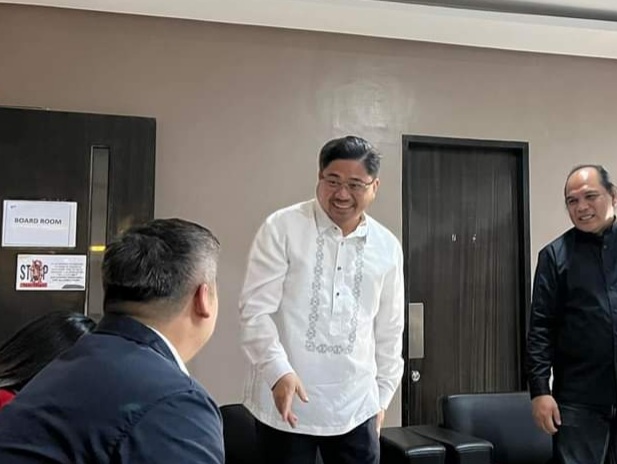Salo bares key features of bicam-approved Magna Carta of Pinoy seafarers
At A Glance
- Kabayan Party-list Rep. Ron Salo gave a run down of the key features of the final version of the prosposed Magna Carta of Filipino Seafarers, which could be signed into law as early as next week.
 Kabayan Party-list Rep. Ron Salo (Facebook)
Kabayan Party-list Rep. Ron Salo (Facebook)
Kabayan Party-list Rep. Ron Salo gave a run down of the key features of the final version of the prosposed Magna Carta of Filipino Seafarers, which could be signed into law as early as next week.
"Finally, we have this groundbreaking legislation, which aims to further advance and safeguard the rights and well-being of our Filipino seafarers," said Salo, who noted that the endeavor had taken "years of hard work" Congress.
Salo, chairman of the Committee on Overseas Workers Affairs, led the House contingent to the Bicameral Conference Committee meetings on the magna carta. The bicam panel, which also involved a Senate contingent, approved the measure last Wednesday, Dec. 6.
The reconciled House and Senate version has several provisions that are designed to address the nefarious practice of ambulance-chasing, which has earned a deplorable reputation among Filipino seafarers.
These include: institutionalization of a Department of Health (DOH)-accredited physician in determining appropriate disability grading; inclusion of specific short period of validation and payment of seafarer’s claim; establishment of seafarer’s “tambayan” with full range of services to seafarers, including legal; provision of free legal assistance by the Public Attorney’s Office (PAO) to seafarers having legal concerns; and clarifying the manner of execution which ensures full restitution of improper awards in cases of reversal or modification, without the need for the seafarer to fork-out from his own pockets.
The reconciled bill also addressed the issue on local maritime graduates' lack of shipboard training, as well as the country's compliance with the standards of the European Maritime Safety Agency (EMSA).
"The bill mandates maritime higher educational institutions (MHEIs) to accommodate up to 150 percent of their carrying capacity for shipboard training, and require them to employ their own training ship, simulators or similar technologies, or in the absence of a training ship, to enter into agreements with domestic or international shipping companies to accept their graduates for shipboard training," Salo said.
The veteran congressman said this will address the issue on the lack of opportunity for shipboard training for our maritime graduates.
“I greatly thank our Senate counterparts, led by Senator Raffy Tulfo, whose support for promotion of the protection of the rights and promotion of the welfare of our seafarers, is undeniable,” Salo stated.
The measure is expected to be ratified by both chambers next week. It will be subsequently submitted for the President’s approval.
"The passage of this law is not only beneficial to our seafarers, but will revitalize our entire seafaring industry, and will ultimately redound to the benefit of our entire country," concluded Salo.